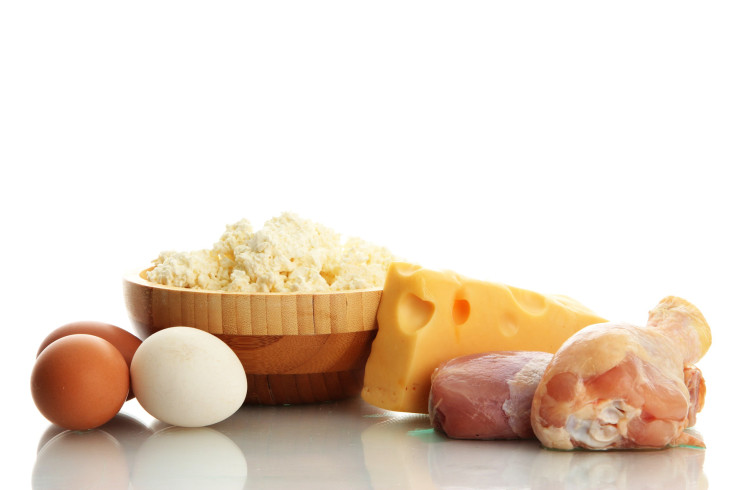Our Need For Protein Makes Us Overeat: Calorie Intake Increases As People Compensate For Lack Of Meat In Diet

Our bodies need daily nutrients — and one of the most important ones is protein, found in meat, fish, legumes, eggs and tofu. Protein alone doesn't do our body much good, but when digested, it is broken down into essential amino acids that our bodies need to function properly. In a nation plagued by the obesity epidemic, we may be overeating — consuming an excess amount of calories — in order to reach our protein requirements, new research published in Obesity Reviews says.
It's not that we don't enough protein, though. “We are definitely usually getting the right amount of protein, it’s just that we are eating it in the wrong balance with other foods,” Dr. Alison Gosby, a University of Sydney postdoctoral research fellow, told The Sydney Morning Herald. “The strength of our nutritional drive for protein is frightening within our current nutritional environment, where a large number of low-protein, high-calorie foods are consumed on a regular basis.”
The study found that reducing the percentage of dietary protein would cause a higher amount of energy intake, which in turn could lead to obesity. Our drive for protein becomes more marked in today’s marketplace, which is often filled with high-caloric, low protein foods. “We found that regardless of your age or BMI, your appetite for protein is so strong that you will keep eating until you get enough protein, which could mean you’re eating much more than you should,” Gosby said in a press release.
The Protein Leverage Hypothesis
Protein’s role in driving excess energy intake has been tied together into a term called the “protein leverage hypothesis” in previous research. The hypothesis was coined in 2005 in a study completed by Dr. Stephen Simpson, where researchers found that insects and mammals regulate food consumption around protein requirements. When the insects and animals were in low protein environments, excess energy intake increased to meet protein requirements, which caused an uptick in the amount of calories consumed. Meanwhile, those who were consuming smaller amounts of foods that were rich in protein were sometimes not meeting energy requirements. The hypothesis thus holds that in our calorie-rich environment, where our foods tend to provide us with less protein, we over-consume in order to meet protein requirements.
“When the proportion of protein in a food is low, it is generally cheaper,” Gosby told The Sydney Morning Herald. “We are not sure whether there is also a carbohydrate target that needs to be reached, or whether it’s just the [current nutritional] environment pushing us away from protein,” she said.
Protein and Dieting
Many fad diets involve fasting and only consuming liquids — such as the lemon detox diet – but Dietitians Association of Australia spokeswoman Melanie McGrice warns that they may work in the short-term but they do not change long-term eating habits. “Probably one of the biggest problems I see with fad diets is people aren’t meeting their protein requirements,” McGrice told The Sydney Morning Herald. “The more overweight someone is the more protein the body requires.”
However, Gosby notes that high-protein diets may also only work short-term, because it’s difficult for people to maintain the increased protein intake long-term. Though every diet works differently for each individual, the CDC recommends that women consume about 46 grams of protein per day, and men consume 56 grams. If you're vegetarian, don't fret — there are plenty non-meat food items that are rich in protein, such as beans and legumes, as well as chickpeas and nuts.



























